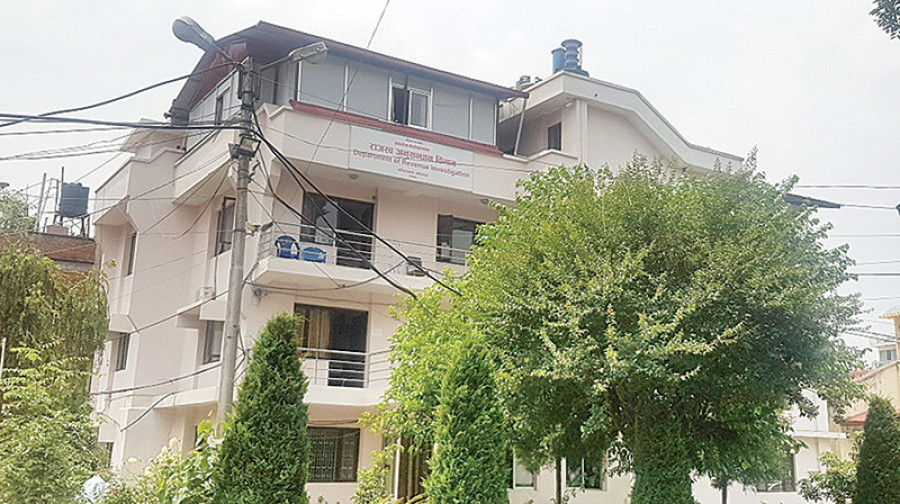Editorial
Catch the big fish
The trade in fake VAT bills is to Nepal's revenue sector what a tick is to a dog's ears.
News about business firms trading in fake value added tax (VAT) bills has been so recurrent in the last few years that journalists and editors often ask themselves what exactly is newsworthy about it. And yet, one has to follow the paper trail doggedly. In its recent update, the Department of Revenue Investigation has implicated around 200 firms in the illegal sale of fake VAT bills, worth around Rs15 billion, to around 1,100 firms. What's more, the racketeers who sold the phoney papers are said to have registered their firms in the name of poor and illiterate villagers so as to indemnify themselves against any liability in the event of a crackdown.
This comes on the heels of the department last month filing a case against the owner of two firms—Unique Wide International and New Unique International—and a chartered accountant for dodging revenue of Rs378 million and using fake VAT bills. Earlier, in March 2019, the department dragged 24 individuals to court on the charge of evading taxes amounting to Rs1.75 billion by providing fake VAT bills. In June that year, the department filed a case against 15 more individuals on similar charges. And in November the same year, it said it had been investigating over 900 firms for purchasing bogus paperwork. As the Post reported at the time, many such firms that had purchased the bills included those that delivered goods and services to government agencies, contractors, multinational firms, hydropower companies and hospitals.
The Inland Revenue Department in the fiscal year 2010-11 busted a fake VAT bill racket worth Rs6.69 billion, exposing the names of 518 major businesspersons and their firms. The trade in fake VAT bills has been on the radar ever since even as it sees frequent iterations. Each time, it's the actors that are new; the act remains the same. What remains to be exposed is why the issue bugs Nepal's revenue sector so perpetually. And yet, the officials of the department inform the media about the number of catches they have made each year while they remain mum on the steps they are taking to change the system fundamentally to ensure that the same act does not repeat.
VAT was introduced in Nepal in 1997 as a broad-based tax that would also cover the value added to each commodity by a firm during all stages of production and distribution. It would be a modern tool to streamline and strengthen revenue collection through effective tax compliance and enforcement. But with its strengths came the loopholes. Businesspersons are often found to be selling fake bills on a commission basis as per the value of the bills. Although there has been considerable improvement after the tax authorities in December 2017 began a cloud-based software system to track transactions in real time, it hasn’t been a panacea. Experts say that the software system itself is problematic as it cannot identify all the malpractices in the market today. This in effect helps racketeers and their allies, including chartered accountants and auditors, escape the radar.
Authorities themselves concede that the existing software system has not been efficient enough to stop malpractices. And yet, they have yet to find a way out. Moreover, the fact that court cases drag on for several years allows malpractices to continue and impedes the efficiency of the department. The department has implicated inland revenue offices, banks and its own officials for either failing to notice 'suspicious transactions' or even colluding with racketeers to dupe the system. By and large, it is able to self-diagnose the ills, but continues to drag its feet when it comes to finding remedies once and for all. Without further ado, it must invest more on revving up its technology to fix the loopholes and incentivise compliance for greater efficiency for greater revenue generation.




 19.87°C Kathmandu
19.87°C Kathmandu














